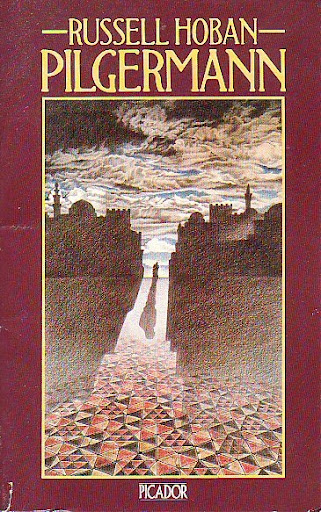Over the last year this blog has slipped into somnolence, pushed aside by family (two grandchildren, a daughter's wedding), other sorts of writing (a new novel in first draft), politics and conservation (two big tree plants and much lobbying), outspoken (Bill Gammage in July) and now ... building.In an attempt to rationalise this house we're adding an extension and replacing the deck. If I'm not too tired at night I will try to make this build, its design, its philosophical and physical implications, the subject of the blog. As well as the occasional photo.




In early March of this year I went to Europe to see my father who, at 94, had decided he could no longer live alone and was moving into a home with full-time care. I flew into Paris and spent two days walking in that bitterly cold city before catching trains to London and on to Glasgow. I wrote this piece while looking out of the window as the train hurtled up the middle of England.London was uninspiring, raining and cold, puddles on the broken pavements. It didn't seem very easy to find anything. I hadn't minded getting lost in Paris, that had seemed fair enough, part of the pleasure of the thing, but in London just trying to find my way out of the Tube seemed to present untold difficulties, never mind that it cost seven pounds for a return fare of only four stops. It was Sunday and the entire Victoria line was closed for repairs. Every few minutes a polite woman's voice would warn us of delays here or there in tones with the ring of death to them. This is what I imagine the announcements would sound like in a concentration camp. No yelling, spitting, cursing, just implacable, immutable, interminable; drilling down mercilessly. Nothing on the other end.I was on my way to see the Lucien Freud retrospective at the National Gallery,  it was a large part of the reason why I'd come this way. I had arranged a four hour stopover and by some stroke of fortune, despite my ineptness in failing to book, there were still tickets to the twelve midday entry. To kill time I went over to the always reliable Pret a Manger for a sandwich and a coffee, then took a damp stroll down to look at Nelson's Monument in Trafalgar Square, that wonderful spire with its four enormous brass lions at the base, promising a national strength which seems, in this age, both misguided and quaint. In one portion of the square someone had built a sharp-sided aluminium structure, like a cast-off from a transformers movie which was, in fact, a three-dimensional realisation of the weirdly complex and incomprehensible Olympic logo, with digital countdowns all over it. This piece of tat was beside the fourth plinth which for several years now has been home to all sorts of expressions of art. Today it was carrying a golden boy riding a cut-out rocking horse that seemed obscure at best, aligned in some way to the clumsiness of the logo.I was there to see the Freud, though, and once in front of the paintings all the despair that grips me when I return to Britain in winter fell away. Here were works from the 1940s right through to last year when he died. The grasp of the man everywhere evident, the early promise that is almost precocious giving way to these strange paintings in their earth tones that dominate the work for the rest of his life. In the 1950s he did a couple of nudes of the same model, ‘Naked woman’ and ‘Naked woman sleeping’ which had been hung side by side. The skin tones, as always with Freud, are curious, unattractive even, but they work to express the emotions beneath the surface, so that in the first – the young woman awake and exposed to the artist's eye – there is revealed without any apparent device her fear of how she looks, I mean she is splayed out there on the bed, but there is a taughtness around the belly or the chest which gives it away, whereas in the next one, when she is asleep, her body is delivered up to the artist without restraint.
it was a large part of the reason why I'd come this way. I had arranged a four hour stopover and by some stroke of fortune, despite my ineptness in failing to book, there were still tickets to the twelve midday entry. To kill time I went over to the always reliable Pret a Manger for a sandwich and a coffee, then took a damp stroll down to look at Nelson's Monument in Trafalgar Square, that wonderful spire with its four enormous brass lions at the base, promising a national strength which seems, in this age, both misguided and quaint. In one portion of the square someone had built a sharp-sided aluminium structure, like a cast-off from a transformers movie which was, in fact, a three-dimensional realisation of the weirdly complex and incomprehensible Olympic logo, with digital countdowns all over it. This piece of tat was beside the fourth plinth which for several years now has been home to all sorts of expressions of art. Today it was carrying a golden boy riding a cut-out rocking horse that seemed obscure at best, aligned in some way to the clumsiness of the logo.I was there to see the Freud, though, and once in front of the paintings all the despair that grips me when I return to Britain in winter fell away. Here were works from the 1940s right through to last year when he died. The grasp of the man everywhere evident, the early promise that is almost precocious giving way to these strange paintings in their earth tones that dominate the work for the rest of his life. In the 1950s he did a couple of nudes of the same model, ‘Naked woman’ and ‘Naked woman sleeping’ which had been hung side by side. The skin tones, as always with Freud, are curious, unattractive even, but they work to express the emotions beneath the surface, so that in the first – the young woman awake and exposed to the artist's eye – there is revealed without any apparent device her fear of how she looks, I mean she is splayed out there on the bed, but there is a taughtness around the belly or the chest which gives it away, whereas in the next one, when she is asleep, her body is delivered up to the artist without restraint.
 In a picture a little further along the wall the woman's breasts are palpable in the most honest sense of the word, they are physically there, the nipple promiscuous, almost pornographic, though the pose is so much more demure than for many of the others. In these early paintings the paint is laid flat on the canvas, which is to say Freud is happy for us to see the brushstrokes but the pictures remain defiantly two-dimensional – which, I suppose, heightens their paradoxical fleshiness. In the later paintings he began to use more and more physical paint, including a kind of stippling which, when viewed close up, appears like a kind of eczema on the subjects' skin (Freud is never interested, it seems, in painting beauty, it is something else about the human condition he wants to capture). In these later pictures the paint sits out from the canvas, built up and up on layers that seem to have been applied like plaster. if you go close to the massive ‘Benefits Supervisor Resting’ (from the famous series of the fat lady Sue Tilly; the painting is enormous, as is its subject) you can see the way the paint has been built up around her hands and her thighs. It seems doubtful, from this close, that it could look like anything, but back away across the room and there she is in all her glory.
In a picture a little further along the wall the woman's breasts are palpable in the most honest sense of the word, they are physically there, the nipple promiscuous, almost pornographic, though the pose is so much more demure than for many of the others. In these early paintings the paint is laid flat on the canvas, which is to say Freud is happy for us to see the brushstrokes but the pictures remain defiantly two-dimensional – which, I suppose, heightens their paradoxical fleshiness. In the later paintings he began to use more and more physical paint, including a kind of stippling which, when viewed close up, appears like a kind of eczema on the subjects' skin (Freud is never interested, it seems, in painting beauty, it is something else about the human condition he wants to capture). In these later pictures the paint sits out from the canvas, built up and up on layers that seem to have been applied like plaster. if you go close to the massive ‘Benefits Supervisor Resting’ (from the famous series of the fat lady Sue Tilly; the painting is enormous, as is its subject) you can see the way the paint has been built up around her hands and her thighs. It seems doubtful, from this close, that it could look like anything, but back away across the room and there she is in all her glory. Strangely, there is, also, in the earlier paintings, a juxtaposition between the subject and the background. On the sitters’ faces this remarkable level of expressiveness is granted with apparently simple broad brush strokes, what might almost be lines carved with a palette knife, whereas their clothes or a chair are painted with exquisite detail, every curlicue of the Paisley pattern rendered. In the picture of ‘Two Irishmen, W11,’ there are the men, one standing, one sitting, both in suits, in an empty room, but the whole left hand top side of the painting gives us the view out of the window of, clearly, London W11, painted with photographic detail. Later, reading about this painting I discover that Freud insisted his models remain standing the whole time he painted the background, otherwise, he said, there would be no balance.Many of the pictures are self-portraits. He is no kinder to himself than any of his other subjects and it's curious to watch how his depiction of himself changes as he grows older, and to compare that to the photographs which show a man of frightening aspect, glowering eyebrows, working in a paint-and-rag-strewn room - I mean literally, the brush-cleanings of decades pasted on the walls. This is the problem with catalogue books, the final self-portrait is one of the smaller paintings in the exhibition and yet it is displayed in the book the same size as Sue Tilly. This last self-portrait an extreme example of the stippling I mentioned before, the bridge of his nose a coruscation of tiny stabs of paint, an attack on his own image.
Strangely, there is, also, in the earlier paintings, a juxtaposition between the subject and the background. On the sitters’ faces this remarkable level of expressiveness is granted with apparently simple broad brush strokes, what might almost be lines carved with a palette knife, whereas their clothes or a chair are painted with exquisite detail, every curlicue of the Paisley pattern rendered. In the picture of ‘Two Irishmen, W11,’ there are the men, one standing, one sitting, both in suits, in an empty room, but the whole left hand top side of the painting gives us the view out of the window of, clearly, London W11, painted with photographic detail. Later, reading about this painting I discover that Freud insisted his models remain standing the whole time he painted the background, otherwise, he said, there would be no balance.Many of the pictures are self-portraits. He is no kinder to himself than any of his other subjects and it's curious to watch how his depiction of himself changes as he grows older, and to compare that to the photographs which show a man of frightening aspect, glowering eyebrows, working in a paint-and-rag-strewn room - I mean literally, the brush-cleanings of decades pasted on the walls. This is the problem with catalogue books, the final self-portrait is one of the smaller paintings in the exhibition and yet it is displayed in the book the same size as Sue Tilly. This last self-portrait an extreme example of the stippling I mentioned before, the bridge of his nose a coruscation of tiny stabs of paint, an attack on his own image. I should probably mention that the exhibition was more than simply crowded, fifty to one hundred people allowed in every half hour, it was difficult to get a clear view of anything. I kept wondering what the women looking at these paintings thought about the way the subjects were rendered, their painful vulnerability, the uncomfortable colours so remote from the normal depiction of women in our culture, but then, in the later pictures, there are lots of men also, equally naked and revealed, with their penises as carefully portrayed as any parts of the women, and it doesn't disturb me... what did happen, though, was that, on the tube back to Euston, no longer complaining about Britain, I started to notice how honest the paintings are, what had seemed often grotesque in Freud was actually just representative.
I should probably mention that the exhibition was more than simply crowded, fifty to one hundred people allowed in every half hour, it was difficult to get a clear view of anything. I kept wondering what the women looking at these paintings thought about the way the subjects were rendered, their painful vulnerability, the uncomfortable colours so remote from the normal depiction of women in our culture, but then, in the later pictures, there are lots of men also, equally naked and revealed, with their penises as carefully portrayed as any parts of the women, and it doesn't disturb me... what did happen, though, was that, on the tube back to Euston, no longer complaining about Britain, I started to notice how honest the paintings are, what had seemed often grotesque in Freud was actually just representative.
I’ve just finished reading Hilary Mantel’s Bring Up The Bodies, her sequel to Wolf Hall and continuation of a life of Thomas Cromwell.In the first book she took us from the fall of Cromwell’s mentor, Cardinal Wolsey – which, in theory, should also have taken Cromwell in its wake – through his ascension to the role of Master Secretary to the King. The novel was nothing short of a bravura performance, a realisation of the man from a very intimate point, as if Mantel was sitting, not in the normal close personal voice on the shoulder of the man, but actually behind his eyes, seeing what he saw at the same time as miraculously maintaining enough distance to describe him. So close, however, that she does not have room to judge him, so close that we, being in there with her, all of us readers, the world over, crowded in there in Cromwell’s head, looking out, we see the world through his lens. It is not such a bad place to be. Cromwell is an entertaining host, learned in language and art, interested in everything from brick making to the psychology of Dukes. He has a modern view of the world, the State, as well as an extraordinary history, having risen to this great height from being the son of a blacksmith.In the second book Mantel is in exactly the same place. Cromwell, however, is in an even more complex situation than when he was separating England from the Church of Rome so that Henry could escape his marriage to Katherine of Aragon. Now Henry is bored with Anne Boleyn, who he took in Katherine’s place as Queen. He has his eye on young Jane Seymour. The marriage, Henry believes, must have been false (Anne had used witchery on him) and he needs Cromwell to find him a way out of it, and Cromwell, acutely aware of how Wolsey was brought down for not achieving the King’s wishes, has to be the agent of his release.There are a thousand other concerns also in Cromwell’s mind. He has his several houses to keep and to alter, the young men he is, in turn, monitoring, the dissolution of the monasteries and the dispersal of the funds to oversee, the ill and possibly dying Katherine to keep an eye on, the relations between England and both the French and the Emperor, spies against him and for him, the jealousy and hatred of those born to privilege to deal with. Amid all this, and much more (the loss of his wife and two daughters that occurred at the end of volume one, the gathering to himself of immense wealth), he sets out to do the King’s will. He does it with coldness and clarity and not a little viciousness and what is extraordinary is that we do it with him, sitting there in his mind. Mantel, our guide, our gracious host in this place, inviting us to watch. See this: see how when the King falls from his horse while riding in the lists and everyone thinks he is dead, Cromwell, in those brief terrifying moments, lines up all the consequences of this sudden change of fortune – the different families and factions queueing up to take power, the gossamer thread upon which his own head, all his wealth and prestige, rests. See how when the King sucks back breath into his lungs and sits up the world is no longer the same. See how when, shortly after, Anne miscarries, becomes, no longer, the vessel of a possible heir, she really has to go and the way to do that is to dream up a charge of treason enacted through adultery. See how simple it is to set up, how expertly Cromwell strips away the esteem, the wealth, the illusions of those powerful men he would destroy along with her. Suddenly Cromwell’s mind, pace all that brilliance, is no longer such a pleasant place to sit within. And yet that is where we are. His mind is ours.This novel is a definition of all that literature can be, that it desires to reach, but so rarely can. It offers the possibility of knowing another man as oneself and liking it just as ill when the curtains are down and all is revealed. Here is writing that, while it might describe what seems to be another time, in truth speaks of what it is to be human. It is long, ruminative, reflective. It’s slow at the start, but it needs to be while we become accustomed to those long lists of names of the individuals involved (complicated because they have both titles and names; so that Henry Fitzroy, for example, the King’s bastard son, can be at times, Richmond, Henry or Fitzroy) but it intensifies as it progresses reaching a remarkable and sustained pitch. I did not want it to end. I wanted to begin again at the beginning as soon as I was finished. I wanted to understand how it might be possible to be King Henry VIII and to murder one’s wives and yet live on, choose another wife while blaming the last for her own fate; at the same moment as I was experiencing what it means to be Cromwell, and liking that even less.
In 2004 the manuscript of my novel An Accidental Terrorist won the Queensland Premier’s Literary Award for an emerging author. I was then, by definition, completely unknown (as opposed to being, now, simply unknown) I certainly had never had a novel accepted for publication.The novel – about a young man who gets caught up in a plan to sabotage woodchipping machinery in the forests of south coast of NSW – had already taken three years to write, but after receiving the award it required most of another one to complete. This was because the award was not simply monetary, it came with funding to work with a professional editor (Julia Stiles). The published novel (UQP) went on to win the award for best first novel in the NSW Premier’s Awards, the following year.Professionally, then, receiving the award was an extraordinary opportunity, not simply to get a contract, but also to develop my writing skills with an editor. Financially it was delightful, $20 000 from the first award, $5000 from the second one, then royalties from sales of another $10 000 (winning awards boosts sales of literary fiction), making a total of $35 000. Not bad really, until you reckon it up over four years. Then the hourly rate comes in at $4.21 before tax.The real value, though, was not monetary (but then no-one, or very few people, write novels for money, most people write them because they are driven to it, because, poor sods, some character flaw makes them believe they have something to say that other people want to hear) the real value, to me, was the recognition that my writing had some worth. It gave me enormous encouragement, enough to go on and write another couple of novels.There was, however, I believe, a larger value to the State itself. Queensland is so young. It is only just beginning to emerge as a sophisticated place which can afford not simply to pull millions of tonnes of coal and ore from the ground, but to invest some of the wealth gained from these actions in the education of its populace. Historically this state, and I’m not just talking about the Joe Bjelke-Petersen days here, has not demonstrated itself a repository of culture – back in the mid-nineteenth century, just for example, when the rest of the world had abolished slavery, Queenslanders made up new laws so as to continue the practice. In those days they called it black-birding.Queensland, until twenty, twenty-five years ago was viewed, Australia wide, as the nation's slightly dumb cousin. In the last couple of decades, through practical policy but also through symbolic gestures like the building of the new GOMA and State Library buildings, and these literary awards, we’ve managed to stand up as equally civilised, proud of the beauty of our landscapes, proud of what we can do as a people. Mr Newman’s action is just as symbolic, in the other direction. It tells the world that Queenslanders have no time for the finer things in life.Writers tell stories about the culture they live in. They describe who we are to ourselves, they offer us, literally, self-reflection, an opportunity to see who we are and thus the ability to decide if we like the way we are behaving.A decision like this tells writers that the government doesn’t care what they do. That the government is only interested in the money. That they are happy to take the GST on books but not to invest any of that back in those who are the cornerstone of the industry.And make no mistake; it’s only the beginning.
Several articles and posts have piqued my curiosity over the last few months and what I thought to do, as part of an end of year review, is to give a brief rundown of what excited me about them and then see if there is a connecting theme or narrative. Right at the end I’ll give the links.The first was a review in the NYRB by the wonderfully named Freeman Dyson of a book by someone called David Deutsch. The book is called The Beginning of Infinity: Explanations that Transform the World, and Dyson, in his essay about it and its ideas, gave a quote from the seventeenth century British ‘prophet of modern science’ Francis Bacon to illustrate a point: ‘If we begin with certainties, we will end in doubt, but if we begin with doubts and bear them patiently, we may end in certainty.’ Bacon was talking about the use of the scientific method as a means to understand the world around us, as opposed to that which had been used for the previous few hundred centuries, which was to start from a religious perspective. It was an extremely radical viewpoint at the time but is now taken as the norm. It is, though, I believe, still a confronting and fascinating prospect, to begin in doubt and to bear it patiently.The essay, following the book, focuses on the problems we face as human beings, that we have faced and always will. Here is Dyson on Deutsch:
‘Deutsch sums up human destiny in two statements that he displays as inscriptions carved in stone, “problems are inevitable” and “problems are soluble.” … These statements apply to all aspects of human activity, to ethics and law and religion as well as to art and science. In every area, from pure mathematics and logic to war and peace, there are no final solutions and no final impossibilities. He identifies the spark of insight which gave us a clear view of our infinite future, with the beginning of the British Enlightenment in the seventeenth century. He makes a sharp distinction between the British Enlightenment and the Continental Enlightenment, which arose at the same time in France.
Both enlightenments began with the insight that problems are soluble. Both of them engaged the most brilliant minds of that age in the solution of practical problems. They diverged because many thinkers of the Continental Enlightenment believed that problems could be finally solved by utopian revolutions, while the British believed that problems were inevitable. According to Deutsch, Francis Bacon transformed the world when he took the long view foreseeing an infinite process of problem-solving guided by unpredictable successes and failures.’
Dyson goes on to reject the notion of the British as the better agents in Deutsch’s version of history as rubbish, that the Chinese and the Ancient Greeks thought similar things. I, however, was very taken by this moment of divergence between those who thought things could be solved once and for all by getting government right, and those who recognised the constant nature of the challenge… I don’t care which country or group of individuals it was, I’m simply interested to note the schism and the costs which have been associated with taking each path. The second piece comes from the evolutionary biologist Mark Pagel, with a transcript of him talking to The Edge, about Infinite Stupidity.Pagel is interested in culture. In this piece he gives a quick run down of the history of evolution from the formation of the planet until now, noting that it wasn’t until humans made the genetic change from Neanderthals to the present homo sapiens that we developed the skill of social learning:
The second piece comes from the evolutionary biologist Mark Pagel, with a transcript of him talking to The Edge, about Infinite Stupidity.Pagel is interested in culture. In this piece he gives a quick run down of the history of evolution from the formation of the planet until now, noting that it wasn’t until humans made the genetic change from Neanderthals to the present homo sapiens that we developed the skill of social learning:
‘That difference is something that anthropologists and archaeologists call social learning. It's a very difficult concept to define, but when we talk about it, all of us humans know what it means. And it seems to be the case that only humans have the capacity to learn complex new or novel behaviours, simply by watching and imitating others. And there seems to be a second component to it, which is that we seem to be able to get inside the minds of other people who are doing things in front of us, and understand why it is they're doing those things. These two things together, we call social learning.
Many people respond that, oh, of course the other animals can do social learning, because we know that the chimpanzees can imitate each other, and we see all sorts of learning in animals like dolphins and the other monkeys, and so on. But the key point about social learning is that this minor difference between us and the other species forms an unbridgeable gap between us and them. Because, whereas all of the other animals can pick up the odd behaviour by having their attention called to something, only humans seem to be able to select, among a range of alternatives, the best one, and then to build on that alternative, and to adapt it, and to improve upon it. And so, our cultures cumulatively adapt, whereas all other animals seem to do the same thing over and over and over again.
Even though other animals can learn, and they can even learn in social situations, only humans seem to be able to put these things together and do real social learning. And that has led to this ‘idea evolution.’ What is a tiny difference between us genetically has opened up an unbridgeable gap, because only humans have been able to achieve this cumulative cultural adaptation.
One way to put this in perspective is to say that you can bring a chimpanzee home to your house, and you can teach it to wash dishes, but it will just as happily wash a clean dish as a dirty dish, because it's washing dishes to be rewarded with a banana. Whereas, with humans, we understand why we're washing dishes, and we would never wash a clean one. And that seems to be the difference. It unleashes this cumulative cultural adaptation in us.’
This is just Pagel setting up the basis of an argument that has several threads: one suggesting that social learning, for all its evolutionary appeal, is not necessarily entirely good for us. That what we’ve become, over many centuries, is very good at copying and not very good at innovation. In a tribal situation, of, say, fifteen people, he points out, it would be useful to have one innovator, and in a larger group, of, say, one hundred people, it might be good to have four or five innovators. But that number would also do for a group of five hundred. He takes it further: that, in our present society, of billions, all connected to each other through the internet, we are unlikely to foster many innovators at all, because one new idea goes a long way.Another thread is a discussion of what innovation is, and why some people are better at it than others. Innovation is hard, he says, because it involves being prepared to be wrong, to be curious enough to try something in many many different ways and not be put off by not getting it right each time.Pagel, it seems to me, is linking social learning as an evolutionary force to genetic evolution, contending that the process is similar and similarly random. That those we regard as brilliant, as having genius, are those who are prepared to be curious, to put themselves in the way of random ideas and to explore them without fear of being shamed.(A slight diversion here: there is in Saul Bellow’s Humboldt’s Gift a delightful ramble, or meander, into the realm of boredom. Charlie Citrine, the narrator, is engaged in writing an exposition of the role of boredom in the development of culture and he undertakes a similar history of the planet as Pagel does, except he talks about the extraordinary, the elemental, the terminally tedious boredom of evolution, all those long millenia where nothing happens, nothing at all…)Speaking of curiosity there was a very interesting piece in Scientific American a couple of weeks ago about walking through doorways. The piece begins by reminding us of that common occurrence: we go into another room and find we cannot remember what it was we went in there to do.It seems this is not something just the more senior of us experience. It happens to everyone and it seems to be a geographical factor of passing through the doorway. Our minds are programmed to remember only what they need to. This is certainly true of our short term memory – we can recall a phone number for just long enough to read it off the page or the screen and to dial it in; a moment later it is gone because we didn’t need that information any longer. For some reason, similarly it seems, the passage through a doorway is sometimes a signal to our brain that we no longer need the information we had a moment ago,
‘some forms of memory seem to be optimized to keep information ready-to-hand until its shelf life expires, and then purge that information in favour of new stuff. Radvansky and colleagues call this sort of memory representation an “event model,” and propose that walking through a doorway is a good time to purge your event models because whatever happened in the old room is likely to become less relevant now that you have changed venues. That thing in the box? Oh, that's from what I was doing before I got here; we can forget all about that.’
The article concentrates on what has been found through experimentation and confines its speculation to that. But it occurs to me there is a link here with therapy. A lot of therapy (gestalt, voice dialogue, etc.) makes use of the conceit that the client can switch between different positions in a room to get different perspectives from within themselves on events. I remember using the analogy myself of my psyche being like a large house with many rooms (indeed, it was not until I undertook therapy that I became aware of a whole wing, a section of my house full of rooms I had no access to). The therapist couldn’t go into those rooms with me, but she could stand at the door holding it open while I entered, secure in the knowledge that I would be able to get back out, that whatever terror lurked within could not trap me. This was, as I say, an analogy or metaphor for psychological states, but I wonder if there is not some useful link here between the research on memory states and doorways, and psychological healing.I’ve mentioned in the first one of these pieces (below) that I’m reading Steven Pinker’s Our Better Angels, about the decline of violence in our time. I’ve only just started but anyone with an eye for the web or the literary pages will be aware it’s been attracting an enormous amount of attention. This idea that we are now less violent than we, as a species, used to be. Pinker spends the first half to two thirds of his big book giving hard data about how people lived and died in previous centuries, and spends the remainder of time concentrating on reasons why this might be so, suggesting, I believe, amongst other influences, the rise of reason and the growth of empathy – the possibility that we might be able to see how the wealth of our neighbour is also our wealth, that we are not all caught up in a zero sum game. As I said, I haven’t got very far into it, but the first chapter illustrates quite graphically how violence has been employed in previous eras. Not bedtime reading. It’s interesting to note that his thesis has not gone unchallenged. A review by Timothy Snyder questioned some of his assumptions.One of Pinker’s assertions is that the decline in violence is not accidental, it has come about because of identifiable factors and we would be wise to note what they are and build on them. He is, it seems to me, arguing that there are not ‘special times’ there are just different times.When I think about this I immediately think of Annie Dillard, and a passage in her book For The Time Being, which seems to articulate this in a very profound and poetic manner.The idea of special times is so hard to avoid, but there is an antidote:Under a piece entitled Now, she writes.
‘There were no formerly heroic times, there was no formerly pure generation. There is no-one here but us chickens, and so it has always been: a people busy and powerful, knowledgeable, ambivalent, important, fearful and self-aware; a people who scheme, promote, deceive, and conquer; who pray for their loved ones, and long to flee misery and death. It is a weakening and discolouring idea, that rustic people knew God personally once upon a time – or even knew selflessness or courage or literature – but that it is too late for us. In fact, the absolute is available to everyone in every age. There never was a more holy age than ours, and never a less.
There is no less holiness at this time – as you are reading this – than there was the day the Red Sea parted, or that day in the thirtieth year, in the fourth month, on the fifth day of the month, as Ezekiel was a captive by the river Chebar, when the heavens opened and he saw visions of God. There is no whit less enlightenment under the tree by your street than there was under the Buddha’s bo tree. There is no whit less might in heaven or on earth than there was the day Jesus said “Maid, arise” to the centurion’s daughter, or the day Peter walked on water, or the night Mohammed flew to heaven on a horse. In any instant the sacred may wipe you with its finger. In any instant the bush may flare, your feet may rise, or you may see a bunch of souls in a tree. In any instant you may avail yourself of the power to love your enemies; to accept failure, slander, or the grief of loss; or to endure torture.
Purity’s time is always now. Purity is no social phenomenon, a cultural thing whose time we have missed, whose generations are dead, so we can only buy Shaker furniture. “Each and every day the Divine voice issues from Sinai,” says the Talmud. Of eternal fulfilment, Tillich said, “If it is not seen in the present, it cannot be seen at all.”’
So there’s five pieces for the year, which leaves out another three hundred and sixty, I guess, because it’s a rare day that I don’t find at least one thing of interest going on in a book, a magazine or the internet. (I’m indebted to 3Quarksdaily for consistently fascinating links) But how to make some sense of my choice?It does seem, pace Dillard as though something is happening to us as people [a shift which the old guard, clearly, resents. I am astonished by the policies being pursued, for example, by the Republican candidates for the US Presidency. Their determination to pull us back into the mire of selfishness and greed, to disband the structures we have created (the Environmental Protection Agency) that offer a skerrick of hope to a planet with, plainly, too many people. (And this attempt to plunge us back into darkness has its purveyors here in Australia, too, don’t you worry about that)]Clearly the Enlightenment is still unweaving around us. A way of thinking that occurred over two hundred years ago is only now playing out, not that this should surprise me. (As the historian who was asked what he thought the effects of the French Revolution would be, said, ‘It’s too early to tell.’) I wonder, though, if one of the reasons behind this shift I speak of, that seems inherent in all the pieces I’ve picked, is the rise of the influence of women in our culture. Not the only reason, but one of them. The society I was born into was still predominantly patriarchal, but that structure has been steadily crumbling and this does change things. It’s not that I think women are better than men, just that including their influence on the way our society organises itself might be proving significant in building understanding of ourselves as a species.It’s just a thought.Links: Review of David Deutsch’s book by Freeman Dyson: hereMark Pagel at The Edge: hereMemory and doorways, Scientific American: hereSteven Pinker can be reviewed in many different places.While I’m giving out links don’t forget to check out XKCD at hereI particularly recommend his cartoon on money here although that’s maybe not so funny as mnemonics for a new age: here please email my dad a shark

I’m going to do my best ofs in two parts, the first, this one, is about books and television, the second one, which will, in the strange world of blogs, be above this one, discusses several posts I’ve come across during the year that have fired up my mind.Best novel: A Visit From the Goon Squad by Jennifer Egan. No competition. It’s a novel told in, if I recall correctly, twenty-three parts, each of which functions as a short story, each one told from a different perspective, jumping forwards and backwards through time, creating, piece by piece, a world that is larger than its parts. I don’t normally like this sort of thing. The change in perspective, I find, has a tendency to rob the reader of their ability to connect with any given character, but Egan does something (I’m not sure what, but I want to find out) so that, rather than getting a fragmented collection of stories, we get an overlap that pierces to the core of both the characters’, and our own, lives. An exceeding beautiful book.A safe choice you might say, in that it won the Pulitzer, but sometimes the prize givers get it right, as they did, I believe, with Julian Barnes’s The Sense of an Ending. I was reading some quite heavy non-fiction and came to this slim novel as a palate cleanser. What a delight it proved to be, the narrator winding us back down through the past, finding different meanings and interpretations with each turn of the staircase. It seems barely possible to have squeezed so much into so few words and yet have it feel clear and concise.Several other books deserve mention. Organising and interviewing for Outspoken I have to read a lot of books during the year in a way that I have not been accustomed to, sometimes three or four novels by one person (previously I’ve allowed books to come to me, as it were, now I have lists). I particularly enjoyed Ann Patchett’s Run. In this novel, Patchett stays with an event for a remarkable amount of time, she uses a single incident to introduce and develop a rich cast of characters, promiscuously shifting perspective between them, and yet, like Egan above, giving them all lives I found myself caring about. Patchett was, by the way, one of the most engaging speakers I’ve ever encountered, never mind having the pleasure of sharing a stage with. I also read a lot of Alex Miller and can recommend Journey to the Stone Country and Autumn Laing, his new novel. Further afield I loved Out Stealing Horses, by Per Petersen, set in the mountains on the border between Norway and Sweden, as well as Mortals, by Norman Rush. Talk about richness and density of prose and staying in a scene, milking every last drop from it. A remarkable novel indeed, set in Africa.Non-fiction: I can’t really separate out one and say it’s the best. I’ve recently read the first two volumes of Thomas Keneally’s The Australians, a very different way of relating history. I’ve heard it said that it’s a novelist’s view and this might be the case but many historians try to weave a narrative through the events they describe. Keneally spends time with individuals, not necessarily the Great Men, and through their stories hopes to illustrate the development of the nation. I found it fascinating, but the two books together, at 967 pages, are a big read and they’re heavy, too, to hold up in bed at night. A good argument for the ebook, although the hardbacks are very handsome. I was very taken by The Philosopher and the Wolf, by Mark Rowlands, and the last book from Tony Judt, that great historian of our time, Ill Fares the Land. Somewhere in there I managed Life by Keith Richards and friend, which also presents a stark picture of our time, or his time in the early years of the Rolling Stones. Beside my bed right now are two other non-fiction works, impatiently waiting for me to finish Patrick White’s The Eye of the Storm (struggling a bit here Patrick, sorry, these long diversions into punctuation-less prose make me drop off to sleep): How to Live, about the life of Montaigne, by Sarah Bakewell and The Better Angels of our Nature, by Steven Pinker, in which he discusses how and why violence has declined. I’ll drink to that.Television series also deserve a mention. The longer series give writers and directors an opportunity to develop character in a way that is novelistic, but also its own form. I watched several this year: Forbrydelsen, or The Killing, (Peter Brandt Nielsen) that dark tale from Copenhagen with the wonderful Sofie Grabol as the detective lead, although surely almost equally important was Bjarne Hendriksen as the brooding father.
Taken with the female detective lead and wanting to practice my French I also went over to look Engrenages, or Spiral, (Guy-Patrick Sainderichin and Alexandra Clert) but while loving Caroline Proust’s fiery detective I was put off by the crimes on which it focused. The French seem to love the gritty reality of violence, they relish bringing the camera in close on the dismembered bodies. Across the Atlantic there were two very different shows: Treme, Series Two, from David Simon, which I think was better than series one. One of the things I love about this drama is that it’s not interested in violence as a plot driver, the concern is music in its many and varied forms. Lastly can I recommend Community Series One and Two, (Dan Harmon). Fifty half hour sit-com shows of tremendous energy and humour starring Joel McHale and Danny Pudi. I came to these full of cynicism about American humour and found myself laughing out loud, delighting in the freshness of their approach. I particularly recommend the episodes about playing pool and the first series paintball.

Writing today is interrupted by a family of spangled drongos in the bunya pine next to the studio. The parents have raised three young in a nest about a hundred metres away but this is the first time I’ve seen the babies out and about. They perch on the horizontal branches waiting to be fed. Every time one of the parents comes in sight all three shake their wings and call out in their infectious chatter, ‘Pick me, pick me.’ The tireless red-eyed adults with their wonderful swooping fish-tails (the babies have yet to develop either of these) regurgitate whatever insect they’ve caught into the waiting mouths.These birds are the most delightful of our summer residents. They appear around the beginning of October, having made the extraordinary journey from Papua New Guinea, and stay until late March when they return north. Their call is unique, a sort of stone rattling laugh, occasionally tinged with a melodious metallic quality reminiscent of something Telstra might produce deep in a copper wire. Today, however, the mother is producing a single repetitive high note that I’ve never attributed to her before, telling her children to sit still and behave and that the man on the studio veranda with the camera is okay, even if he is a man.
Every time one of the parents comes in sight all three shake their wings and call out in their infectious chatter, ‘Pick me, pick me.’ The tireless red-eyed adults with their wonderful swooping fish-tails (the babies have yet to develop either of these) regurgitate whatever insect they’ve caught into the waiting mouths.These birds are the most delightful of our summer residents. They appear around the beginning of October, having made the extraordinary journey from Papua New Guinea, and stay until late March when they return north. Their call is unique, a sort of stone rattling laugh, occasionally tinged with a melodious metallic quality reminiscent of something Telstra might produce deep in a copper wire. Today, however, the mother is producing a single repetitive high note that I’ve never attributed to her before, telling her children to sit still and behave and that the man on the studio veranda with the camera is okay, even if he is a man. The bunya trees, by the way, are carrying more fruit than I’ve ever seen. One of them has forty or fifty of the large nut clusters in its top branches. Rarely has there been a season as rich as this, the trees have a vibrancy that delights the eye, the birds, insects, plants all sing of the fecundity and generosity of life from the first glimmer of dawn till dusk.
The bunya trees, by the way, are carrying more fruit than I’ve ever seen. One of them has forty or fifty of the large nut clusters in its top branches. Rarely has there been a season as rich as this, the trees have a vibrancy that delights the eye, the birds, insects, plants all sing of the fecundity and generosity of life from the first glimmer of dawn till dusk.
News today that one of my favourite authors, Russell Hoban, has died at the age of 86, in London.Hoban wrote many novels and children’s books, but the one I like best of all is Pilgermann, which he published in 1983. I have reread it countless times and it refuses to age, partly, I suppose, because it is an allegorical novel that follows the adventure of a Jew who, having got caught up in a pogrom because he was conducting an illicit affair with Sophia, a merchant’s wife, is castrated by the mob and left to die. While lying in the dirt he has a vision of Christ who instructs him to journey to Jerusalem, and it is the story of this voyage, and what happens when he gets to Antioch, that are the subject of the novel, a marvellous, witty and deeply profound meditation on Judaism, Christianity and Islam at the time of the Crusades, which includes, amongst other characters, the wonderful Bembel Rudzuk and Pilgermann’s own Death, a ribald figure who accompanies him for part of the journey.Hoban was most famous for his chidren’s novel, The Mouse and His Child, and the post-apocalyptic Riddley Walker – the latter an extraordinary achievement written in a language Hoban made up specifically for the novel, a possible future English which has its own rhythm and cadence.He has never stopped writing but I’m afraid I haven’t kept up with many of his more recent books. It was the ones I’ve mentioned as well as The Lion of Boaz Jaquin and Jaquin Boaz, and Kleinzeit which managed to enter the deepest parts of my psyche with their peculiar mythic style, as if they were no more than descriptions of other worlds that did, or had, or would exist, whose reputation had come down to us by word of mouth. My gratitude to Russell Hoban is immense.
 A fascinating article here on the causes of our present economic malaise written by Joseph E Stiglitz, which I found through 3QuarksDaily, a site I visit regularly and also highly recommend for the intelligence of its links. The article suggests that there are striking parallels between where we are and the Great Depression of the '30s, which might not seem such an original idea except that Stiglitz believes the Depression was not caused by a banking failure but by the changes to employment wrought when the agriculture sector no longer needed 25% of the workforce to produce food. The banking crisis sat on top of that in the same way that this banking crisis sits on top of the increased production attained by mechanisation and globalisation. Stiglitz, a Nobel Prize winning economist, also offers some solutions - borrowing to invest in infrastructure and education. The piece originally appeared in Vanity Fair.
A fascinating article here on the causes of our present economic malaise written by Joseph E Stiglitz, which I found through 3QuarksDaily, a site I visit regularly and also highly recommend for the intelligence of its links. The article suggests that there are striking parallels between where we are and the Great Depression of the '30s, which might not seem such an original idea except that Stiglitz believes the Depression was not caused by a banking failure but by the changes to employment wrought when the agriculture sector no longer needed 25% of the workforce to produce food. The banking crisis sat on top of that in the same way that this banking crisis sits on top of the increased production attained by mechanisation and globalisation. Stiglitz, a Nobel Prize winning economist, also offers some solutions - borrowing to invest in infrastructure and education. The piece originally appeared in Vanity Fair.
This is, surely, one of the more curious questions of our time. The Administration was prepared to lie in the most remarkable fashion before entering Iraq in 2003, so what strange ethical or moral imperative prevented them from pretending that they'd actually found something when they got there?Iraq did, of course, at one time have WMD, which they were prepared to use on their own citizens and the soldiers and citizens of neighbouring countries. There is ample (highly disturbing) evidence of this. Asking this question is in no way a defence of the Saddam regime, which clearly demonstrated itself as violent, repressive, dictatorial and even genocidal in its treatment of minorities.What I’m interested in are the lies the Bush Administration told prior to the invasion and their subsequent and curious outbreak of honesty.The most egregious example of lying was the address to the United Nations Security Council by US Secretary of State Colin Powell in February 2003. In this speech the case for the existence of WMD was made on the basis of information which had already been conclusively proven to be false, not just within the security community but in articles published throughout the western world.(There is an aside here which never ceases to amaze: A copy of Picasso’s painting Guernica hangs on the wall The UN Security Council room. This is a painting that depicts the horror not just of war but, in particular, the first use of massive aerial bombing of civilian targets – by Nazi Germany and Fascist Italy on the town of Guernica, in Spain, in April 1937. This painting was covered over during Mr Powell’s speech. What he was about to propose, the attack by the US on Iraq, could not occur in front of such a painting. I’m not sure what this says about the Bush Administration, the United Nations or, in fact about the power of Art.)Mr Powell never blinked while outlining his case before the Security Council. It was an extraordinary performance by the man who at that time held one of the most important positions in world politics. (You can read the text of his speech here) It was, as were the statements made by the UK Government, not only based on false or subsequently proved deliberately misinterpreted information, but also unbelievable brazen, a wonderfully Orwellian demonstration of the theory that if you make your lie big enough nobody can argue with it.So, when they went in to Iraq, and had the whole country under their control, completely locked down (as it was during the first few weeks before their famous bungles and the start of the insurgency) why didn’t they just set up something for the cameras, a bunker somewhere full of anthrax or the makings of a nuclear weapon? Why not go through with the thing and demonstrate themselves to be the heroes they claimed to be?Was that simply a step too far? Or was it that they were just so arrogant they believed they didn’t need to justify what they’d done? That victory was so assured and wonderful outcomes so inevitable that they didn’t think it necessary?
This fellow wasn't so happy with his reflection. He stayed there for about ten minutes, pecking at the mirror, crouching up and down, raising his wing to show the flash of yellow beneath just to make sure. This one, gender unidentified, slept in the makaranka for 36 hours before moving
This one, gender unidentified, slept in the makaranka for 36 hours before moving Clearly the weather's warming up.
Clearly the weather's warming up.
I watch, like so many millions worldwide, in rapt fascination – possessed of Schadenfreude of the worst and most extreme kind – as the Murdoch empire implodes, astonished that this powerful organisation cannot seem to manage to stop its self-destruction, daring, meanwhile, to hope that the collapse will continue for long enough that our – or someone’s – politicians, after so long beneath its thumb, will stir and throw him off for once and for all. The Guardian, the paper which, through nothing other than good quality journalism, has broken this story, was suggesting this morning in a leader that Britain use this opportunity to pass legislation to discourage the centralisation of media. The article went so far as to contend democracy would be better for it. That we’d get better laws, a more efficient state. For once the Guardian is not by itself.In amongst all the comment, however, one of the most extraordinary things has surely been these photographs of Murdoch himself, taken in recent days. What is the man wearing? Who let him out in these clothes? Where did he get them? Does nobody own him? Does he have no shame? He resembles nothing so much as a 3pm punter at a suburban TAB; or someone lying spread-eagled on a couch with a beer in one hand and a ciggie in another watching the kind of daytime TV News Limited produces for the masses; an ageing Glaswegian soccer hooligan holidaying on the Costa del Sol. It’s not that he’s old. We know he’s old. He’s been old for a while, developing wonderful jowls over which his control is questionable. It’s the base-ball cap and the shorts combined with the black sweat suit with the white zip up the middle. The one with the white panels on the shoulders. On sale at Target for $9.95. If I were them I’d sue. While the man's down. How do the mighty fall.
The Guardian, the paper which, through nothing other than good quality journalism, has broken this story, was suggesting this morning in a leader that Britain use this opportunity to pass legislation to discourage the centralisation of media. The article went so far as to contend democracy would be better for it. That we’d get better laws, a more efficient state. For once the Guardian is not by itself.In amongst all the comment, however, one of the most extraordinary things has surely been these photographs of Murdoch himself, taken in recent days. What is the man wearing? Who let him out in these clothes? Where did he get them? Does nobody own him? Does he have no shame? He resembles nothing so much as a 3pm punter at a suburban TAB; or someone lying spread-eagled on a couch with a beer in one hand and a ciggie in another watching the kind of daytime TV News Limited produces for the masses; an ageing Glaswegian soccer hooligan holidaying on the Costa del Sol. It’s not that he’s old. We know he’s old. He’s been old for a while, developing wonderful jowls over which his control is questionable. It’s the base-ball cap and the shorts combined with the black sweat suit with the white zip up the middle. The one with the white panels on the shoulders. On sale at Target for $9.95. If I were them I’d sue. While the man's down. How do the mighty fall.
Just a note to say that my piece on the Great Ocean Walk has been posted on Roaming Tales, Caitlin Fitzsimmons's fine blog - she's had twins recently and has invited other writers to contribute pieces. It's worth a look...
 you can see more of his work
you can see more of his work  you can see more of his work
you can see more of his work